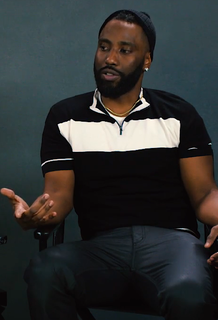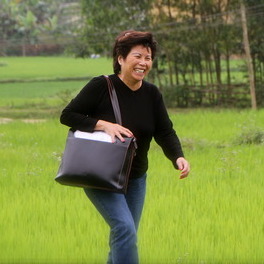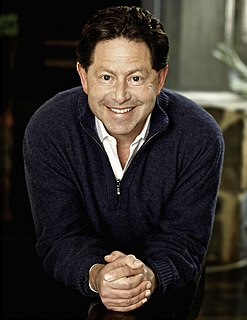A Quote by Linda Cardellini
Regardless of how you feel about war and peace those serving military are doing a duty for the rest of us and they're protecting a way of life that they sometimes come back to and it's not close to them.
Related Quotes
For you see, the face of destiny or luck or god that gives us war also gives us other kinds of pain: the loss of health and youth; the loss of loved ones or of love; the fear that we will end our days alone. Some people suffer in peace the way others suffer in war. The special gift of that suffering, I have learned, is how to be strong while we are weak, how to be brave when we are afraid, how to be wise in the midst of confusion, and how to let go of that which we can no longer hold. In this way, anger can teach us forgiveness, hate can teach us love, and war can teach us peace.
At the end of the day, when it comes down to it, all we really want is to be close to somebody. So this thing where we all keep our distance and pretend not to care about each other, it's usually a load of bull. So we pick and choose who we want to remain close to, and once we've chosen those people, we tend to stick close by. No matter how much we hurt them. The people that are still with you at the end of the day, those are the ones worth keeping. And sure, sometimes close can be too close. But sometimes, that invasion of personal space, it can be exactly what you need.
Yes and no. Because America has only about 1 percent of the population serving in the military, it is hard for many civilians to understand the sacrifices military families make. However, my experience is that after the Vietnam War, the public learned that they should support the military whether or not they support the war. You've seen that outpouring of support for the veterans of both Iraq and Afghanistan.
It's not about composition. It's the way you feel about how your objects should relate to each other. I've got lots of African statues and things, and the cleaner arranges them like soldiers, which drives me mad. So I have to rearrange them, and I must drive her mad, because I'm doing anarchy and she's doing military manoeuvres.
When these resources are degraded or polluted, then there are fewer of them for the rest of us, and then we start competing for them and eventually as we compete, there are those of us, who have the capacity, who have the ability to be the controllers, to decide who accesses them, how much they access, and eventually there is a conflict. Those who feel marginalized, those who feel excluded, eventually react in an effort to get their own justice, and we have conflict.
Genuine politics -- even politics worthy of the name -- the only politics I am willing to devote myself to -- is simply a matter of serving those around us: serving the community and serving those who will come after us. Its deepest roots are moral because it is a responsibility expressed through action, to and for the whole.
We used to have a War Office, but now we have a Ministry of Defence, nuclear bombs are now described as deterrents, innocent civilians killed in war are now described as collateral damage and military incompetence leading to US bombers killing British soldiers is cosily described as friendly fire. Those who are in favour of peace are described as mavericks and troublemakers, whereas the real militants are those who want the war.
We stand there for a moment, looking at each other, and in that instant I feel our connection so strongly it's as though it achieves physical existence, becomes a hand all around us, cupping us together, protecting us. This is what people are always talking about when they talk about god: this feeling, of being held and understood and protected. feeling this way seems about as close to saying a prayer as you could get.




































